Abstract
The paper describes the spontaneous recovery of language abilities of 52 stroke patients who were aphasic for more than 4 weeks. These patients had been randomly allocated to receive no speech therapy and had been assessed at 6-weekly intervals after a stroke. There was improvement in language abilities over time. Age, sex and aphasia type were not related to the amount of improvement. An aphasic patient's level of language ability at 6 months could be predicted on the basis of the test score on the Porch Index of Communicative Ability at 4 weeks.
Full text
PDF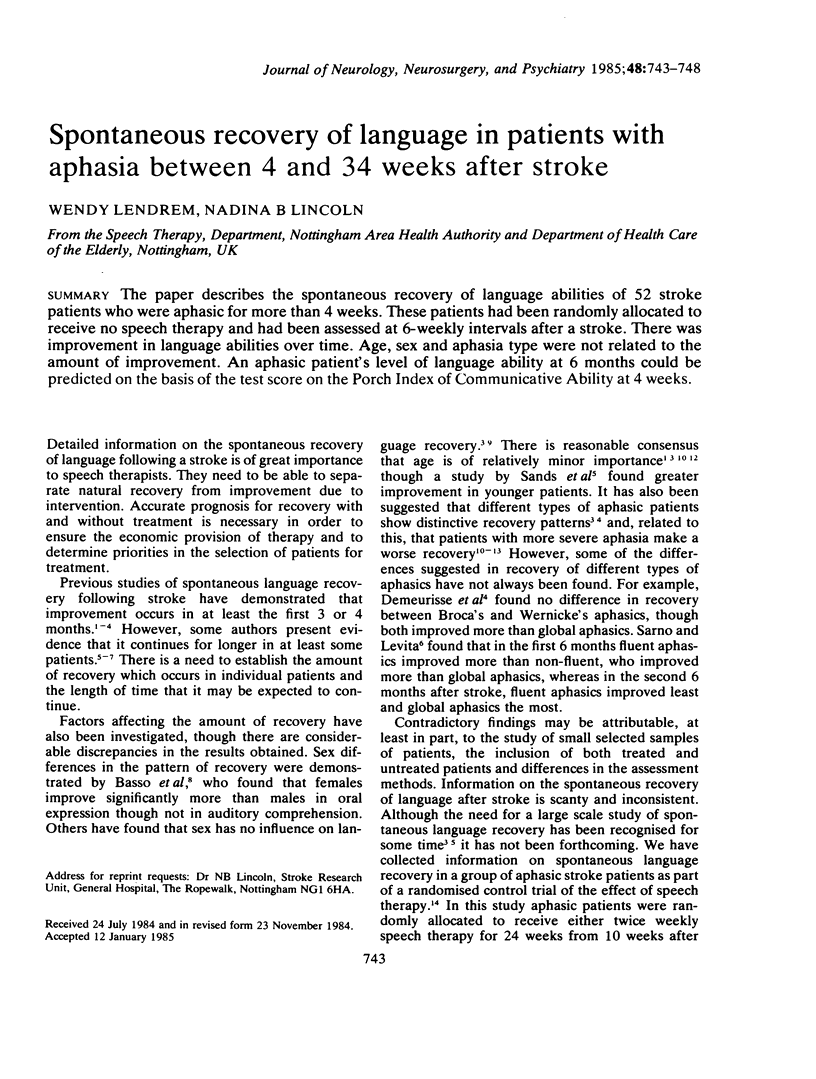
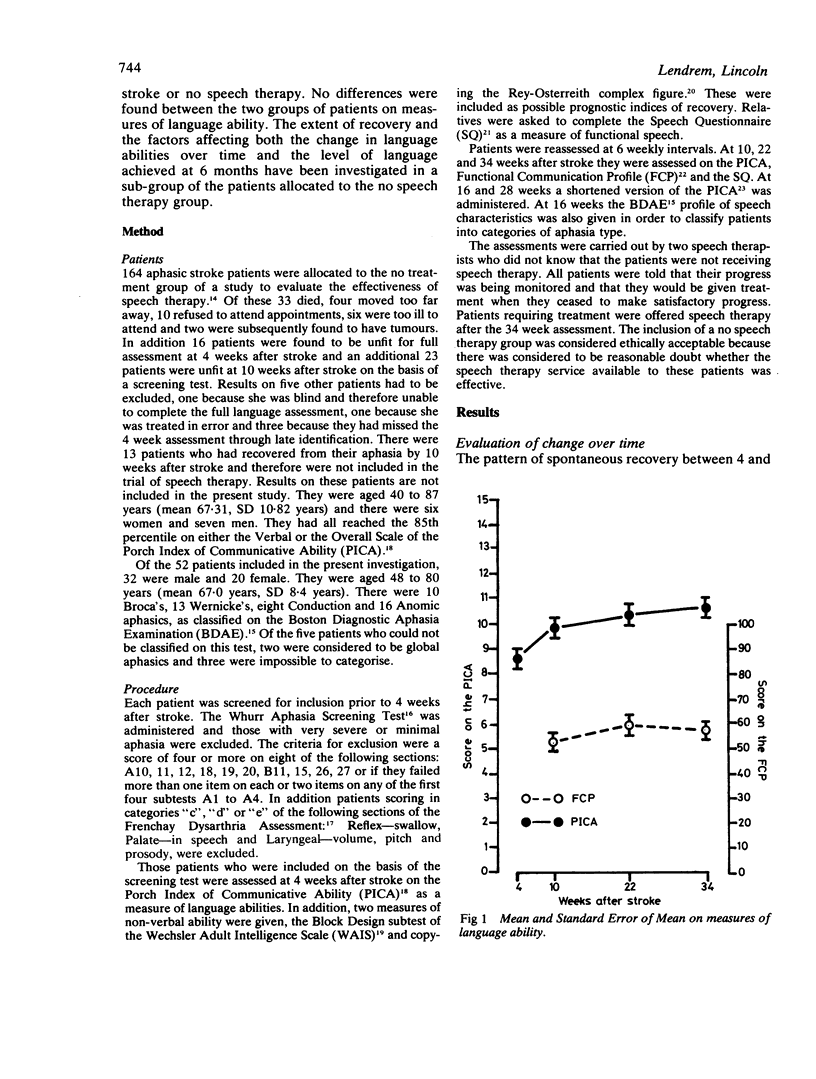
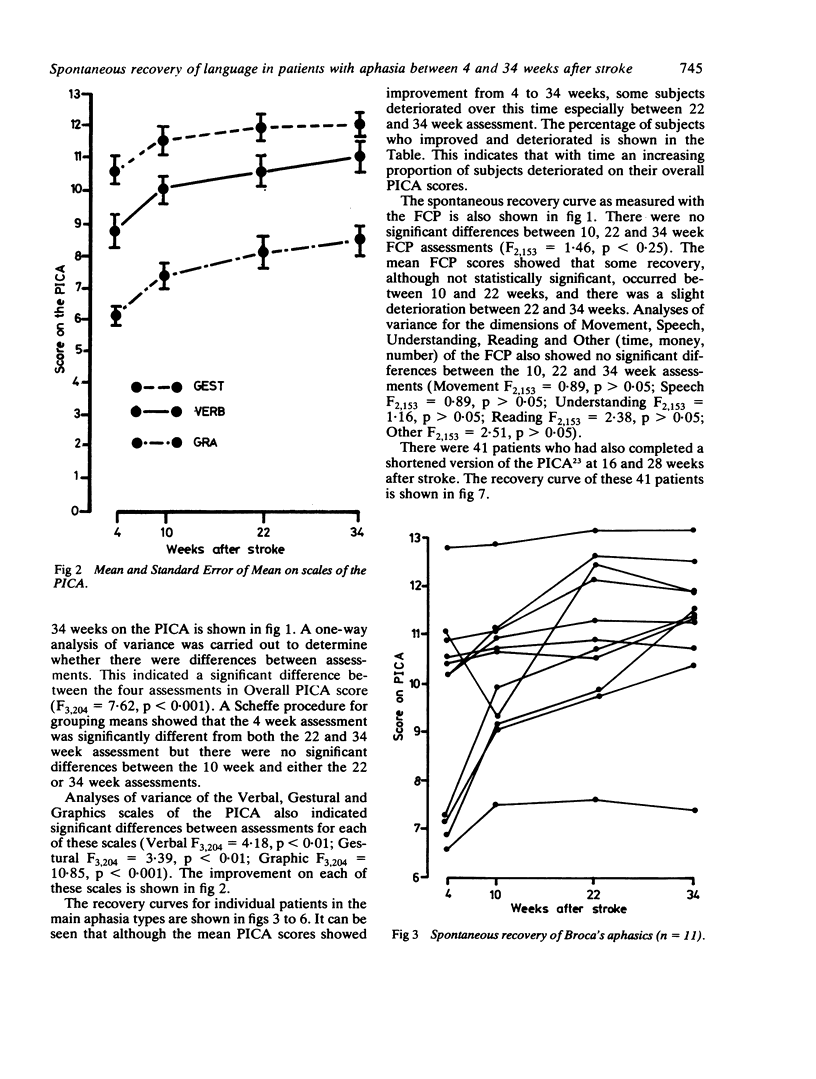
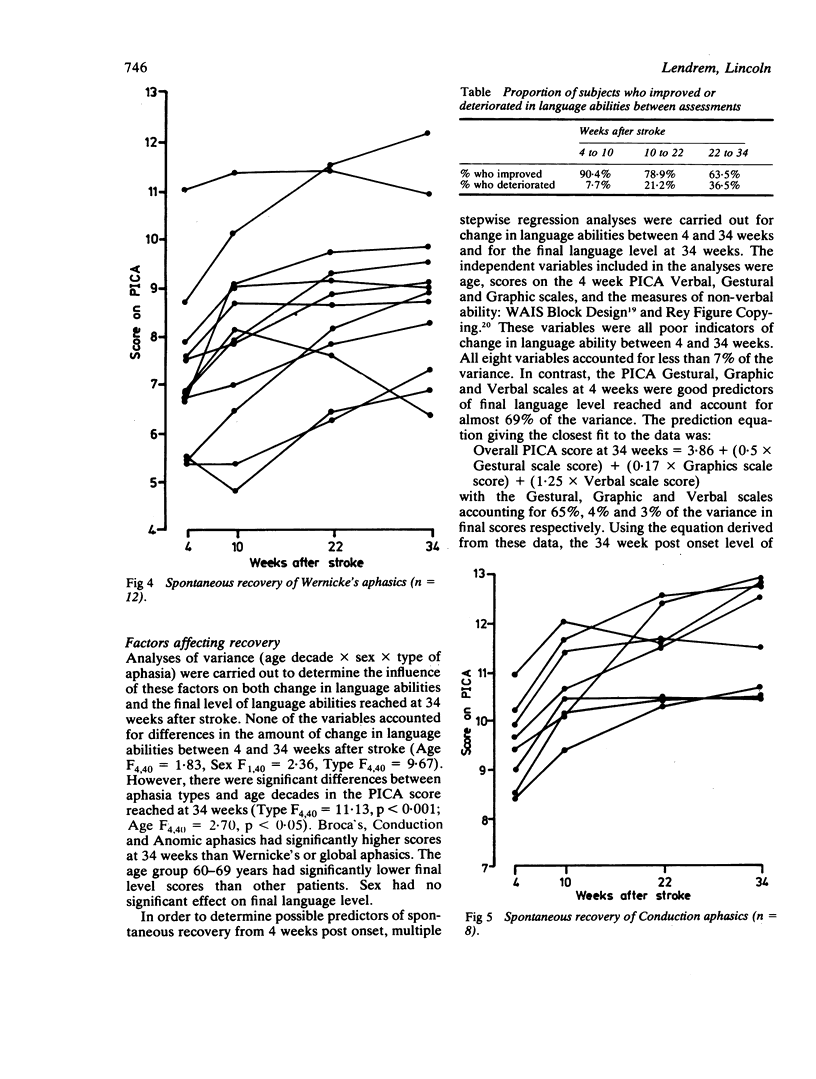
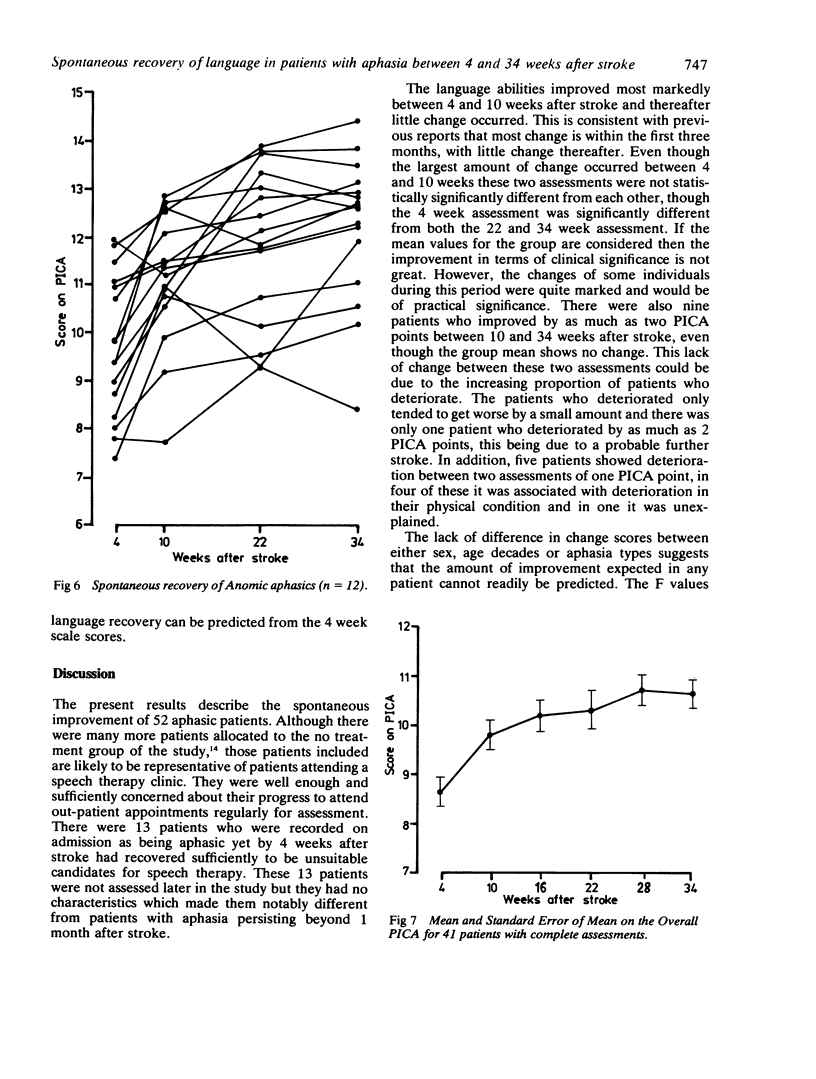
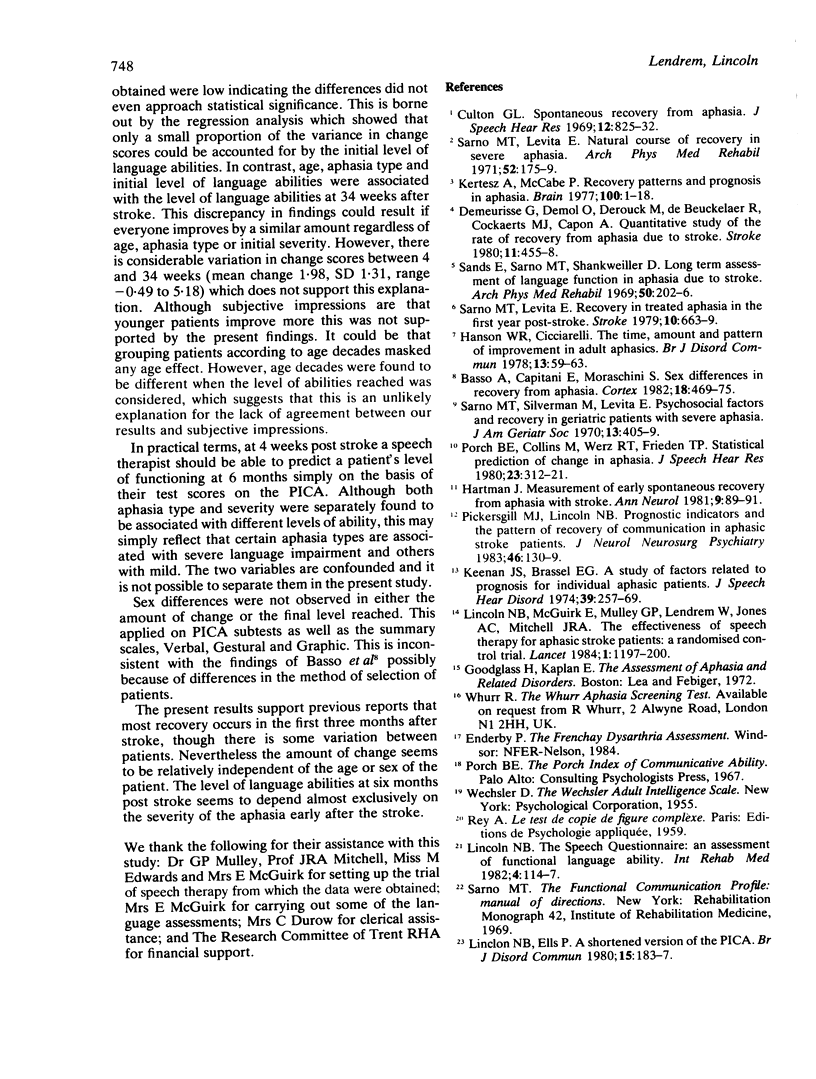
Selected References
These references are in PubMed. This may not be the complete list of references from this article.
- Basso A., Capitani E., Moraschini S. Sex differences in recovery from aphasia. Cortex. 1982 Oct;18(3):469–475. doi: 10.1016/s0010-9452(82)80044-0. [DOI] [PubMed] [Google Scholar]
- Culton G. L. Spontaneous recovery from aphasia. J Speech Hear Res. 1969 Dec;12(4):825–832. doi: 10.1044/jshr.1204.825. [DOI] [PubMed] [Google Scholar]
- Demeurisse G., Demol O., Derouck M., de Beuckelaer R., Coekaerts M. J., Capon A. Quantitative study of the rate of recovery from aphasia due to ischemic stroke. Stroke. 1980 Sep-Oct;11(5):455–458. doi: 10.1161/01.str.11.5.455. [DOI] [PubMed] [Google Scholar]
- Greenough A., Wood S., Morley C. J., Davis J. A. Pancuronium prevents pneumothoraces in ventilated premature babies who actively expire against positive pressure inflation. Lancet. 1984 Jan 7;1(8367):1–3. doi: 10.1016/s0140-6736(84)90177-6. [DOI] [PubMed] [Google Scholar]
- Hanson W. R., Cicciarelli A. W. The time, amount, and pattern of language improvement in adult aphasics. Br J Disord Commun. 1978 Apr;13(1):59–63. doi: 10.3109/13682827809011326. [DOI] [PubMed] [Google Scholar]
- Hartman J. Measurement of early spontaneous recovery from aphasia with stroke. Ann Neurol. 1981 Jan;9(1):89–91. doi: 10.1002/ana.410090119. [DOI] [PubMed] [Google Scholar]
- Keenan J. S., Brassell E. G. A study of factors related to prognosis for individual aphasic patients. J Speech Hear Disord. 1974 Aug;39(3):257–269. doi: 10.1044/jshd.3903.257. [DOI] [PubMed] [Google Scholar]
- Kertesz A., McCabe P. Recovery patterns and prognosis in aphasia. Brain. 1977 Mar;100(Pt 1):1–18. doi: 10.1093/brain/100.1.1. [DOI] [PubMed] [Google Scholar]
- Lincoln N. B. The speech questionnaire: an assessment of functional language ability. Int Rehabil Med. 1982;4(3):114–117. doi: 10.3109/09638288209166893. [DOI] [PubMed] [Google Scholar]
- Porch B. E., Collins M., Wertz R. T., Friden T. P. Statistical prediction of change in aphasia. J Speech Hear Res. 1980 Jun;23(2):312–321. doi: 10.1044/jshr.2302.312. [DOI] [PubMed] [Google Scholar]
- Sands E., Sarno M. T., Shankweiler D. Long-term assessment of language function in aphasia due to stroke. Arch Phys Med Rehabil. 1969 Apr;50(4):202–206. [PubMed] [Google Scholar]
- Sarno M. T., Levita E. Natural course of recovery in severe aphasia. Arch Phys Med Rehabil. 1971 Apr;52(4):175–178. [PubMed] [Google Scholar]
- Sarno M. T., Levita E. Recovery in treated aphasia in the first year post-stroke. Stroke. 1979 Nov-Dec;10(6):663–670. doi: 10.1161/01.str.10.6.663. [DOI] [PubMed] [Google Scholar]
- Sarno M. T., Silverman M., Levita E. Psychosocial factors and recovery in geriatric patients with severe aphasia. J Am Geriatr Soc. 1970 May;18(5):405–409. doi: 10.1111/j.1532-5415.1970.tb03673.x. [DOI] [PubMed] [Google Scholar]


